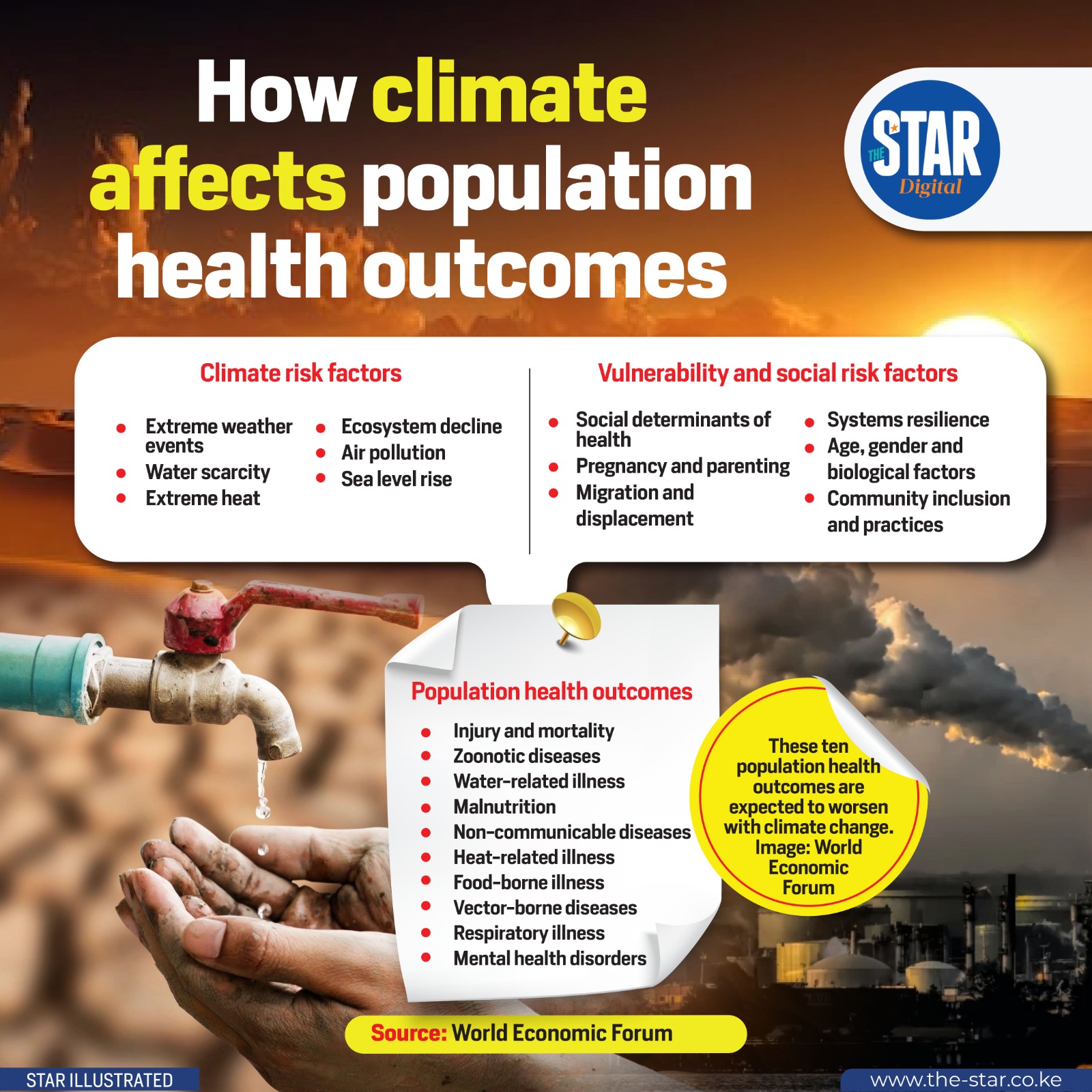

Climate change is emerging as one of the greatest threats to global health, driving a complex web of risks that are already being felt across populations.
According to the World Economic Forum, the intersection of climate risk factors and social vulnerabilities is expected to worsen ten major health outcomes.
Extreme weather events, rising temperatures, air pollution, water scarcity, ecosystem decline, and sea level rise are among the leading climate stressors.
These environmental shifts do not act in isolation but interact with social determinants of health such as poverty, displacement, age, gender, and community resilience.
Together, they create conditions that heighten vulnerability and undermine public health systems.
The impact is far-reaching: increased injuries and mortality from disasters, surges in zoonotic, food-borne, and vector-borne diseases, and rising cases of water-related illness.
Heat-related illness is also intensifying, while malnutrition and non-communicable diseases are on the rise as food systems and living conditions deteriorate.
Respiratory illnesses linked to air pollution and mental health disorders caused by displacement, stress, and loss further illustrate the broad consequences.
Without urgent adaptation and mitigation, climate change will continue to erode health gains, strain healthcare systems, and place an even greater burden on vulnerable communities worldwide.


















